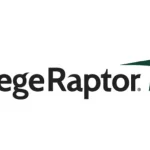What is the FAFSA Simplification Act?
Students applying for financial aid for the 2024-2025 academic year will be impacted by some of the most significant federal financial aid changes in four decades. The FAFSA Simplification Act aims to make applying for federal financial aid easier for students by reducing the number of questions on the form. The current FAFSA requires some students to answer over 108 questions; with the new changes, students will have to complete fewer than 36 questions according to Congressional talking points. In addition, some provisions substantively change the eligibility formulas. Here are some of the changes:
- Elimination of the Expected Family Contribution (EFC) and its replacement with the Student Aid Index (SAI)
- Aligning definitions of a student’s family size to what is reported on tax filings
- Expansion of pell grant eligibility and award amounts
- Removal of the number of family members enrolled in college from the SAI calculation
- Changes to budgetary items within the Cost of Attendance
- Elimination of DRT (Data Retrieval tool) and its replacement with the FA-DDX (Future Act- Direct Data Exchange)
- Streamlined verification criteria
- Additional professional judgment guidance
- FAFSA availability pushed to December from October 2023
How will these changes impact schools?
As a former financial aid counselor, I can attest that financial aid staff are no strangers to change. However, with declining enrollment, staffing shortages, and the economy necessitating financial restraint, the administration of these historic changes will be uniquely challenging. The COO of Federal Student Aid, Richard Cordray, recently recommended that leadership at higher education institutions prepare for these changes by:
- Training relevant staff on the upcoming FAFSA Simplification Act changes
- Reviewing all institutional deadlines and processes due to the FAFSA being released in December versus October
- Updating all SIS, CRMs, and other software applications used to support financial aid administration
Cordray explained that “insufficient financial resources for items like staffing, software updates, and training may increase risks of non-compliance, which could lead to audit findings, fines, and liabilities.” Unfortunately, implementing these recommendations will be challenging for most institutions, as budget cuts are currently impacting higher education institutions.
How is Ocelot uniquely capable of supporting schools with FAFSA Simplification?
The stakes are high. We are here to help. The Ocelot AI Communication Platform is supported by a team of higher education experts who curate content and work closely with institutions to ensure our solutions not only understand what students ask but also direct them to accurate answers. Our customers can use our powerful AI domain-specific engine in conjunction with our extensive pre-built library.
We have a dedicated Compliance Committee with over 70 years of higher education experience, to prepare our Chatbot, Live Chat, Videos, and Texting clients for these changes. Ocelot’s roots began in financial aid publications. We have built our success on doing the heavy lifting for our clients so they can focus on serving their students. As a trusted partner to institutions nationwide, we look forward to helping our customers achieve more.















